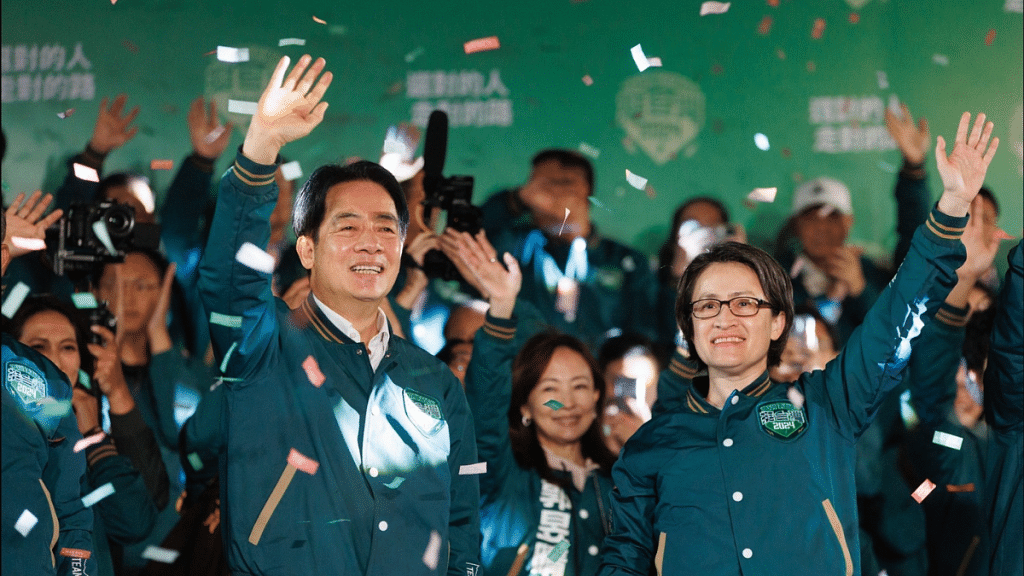New Delhi: Taiwan’s ruling Democratic Progressive Party (DPP) secured a landmark third term, with the country’s vice president Lai Ching-te or William Lai securing the Presidential vote.
While US Secretary of State Antony Blinken congratulated the DPP as well as hailed Taipei for its “robust democratic system and electoral process”, Japan and the EU also congratulated Lai for his victory.
In contrast, China’s Taiwan Affairs Office spokesperson Chen Binhua stated that the vote “will not impede the inevitable trend of China’s reunification”. Taiwan’s foreign ministry responded, asking Beijing “to respect the election results, face reality and give up suppressing Taiwan”.
“The one-China principle is the solid anchor for peace and stability in the Taiwan Strait,” the spokesperson said, adding that the international community will continue to support ‘Chinese people’s just cause of opposing ‘Taiwan independence’ separatist activities and striving to achieve national reunification’.
Speaking to his supporters Saturday after a historic win, Lai announced, “This is a night that belongs to Taiwan. We managed to keep Taiwan on the map of the world.”
“The election has shown the world the commitment of the Taiwanese people to democracy, which I hope China can understand,” he added.
Lai has served as vice-president since 2020 under President Tsai Ing-wen, the first woman to hold the top office. The DPP government has been known for promoting Taiwanese nationalism and sovereignty separate from China.
However, cross-strait tensions between the two countries have never been higher than this dispensation. President-elect Lai is often seen as a “troublemaker” by China for his public pro-independence statements. In January last year, Lai reportedly noted: “Taiwan is already a sovereign and independent nation”.
Lai received just over 40 percent of the total votes, while opposition Kuomintang (KMT) party candidate Hou Yu-ih and Taiwan People’s Party (TPP) candidate Ko Wen-je tallied 33.49 percent and 26.45 percent, respectively.
While the DPP secured the Presidential vote, it was unable to secure a majority in Taiwan’s 113-member Parliament or Legislative Yuan. No party won a majority in Parliament for the first time since 2004, with the DPP securing 51 seats, the KMT 52, and the TPP eight.
Former Taiwanese envoy to the US Hsiao Bi-khim, 52, was elected as Lai’s deputy. A self-proclaimed “cat warrior”, Hsiao vows to deliver the “global vision” needed to tackle tensions with China. The political veteran came up with her nickname when sent to Washington – with her four cats – in 2020, in response to Beijing’s aggressive “wolf warrior” style diplomacy.
She is currently sanctioned by Beijing, meaning neither she nor her family can enter mainland China, Hong Kong or Macau. Hsiao argues that her extensive contacts in Washington on both sides of the aisle will help Taiwan to preserve the status quo, even at the expense of ties with China.
(Edited by Tony Rai)
Also Read: Pro-independence, pro-China or centrist — Taiwan poll players & how they may impact global politics
